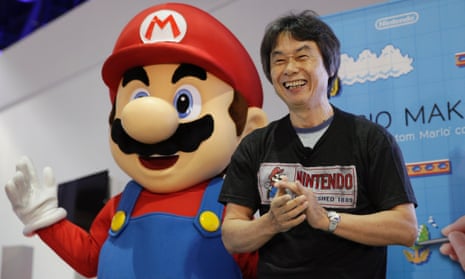Nintendo was exploring virtual reality (VR) gaming long before the Oculus Rift was a glint in its creator’s eye – let alone a hole in Facebook boss Mark Zuckerberg’s wallet.
Nintendo’s Virtual Boy console, released in 1995, was an infamous flop. That may explain why its creative guru Shigeru Miyamoto is wary of leaping onto the VR bandwagon in 2014.
“As game designers, we at Nintendo are interested in VR technology and what it can do, but at the same time what we’re trying to do with Wii U is to create games for everyone in the living room,” Miyamoto told Time this week.
“We want the Wii U to be a game system that brings video gamers into the living room… It’s intended to be fun not only for the person who’s playing, but also for the people who are watching.”
In the view of Miyamoto – and by extension Nintendo – VR gaming headsets aren’t the best technology to achieve that aim:
“When you think about what virtual reality is, which is one person putting on some goggles and playing by themselves kind of over in a corner, or maybe they go into a separate room and they spend all their time alone playing in that virtual reality, that’s in direct contrast with what it is we’re trying to achieve with Wii U. And so I have a little bit of uneasiness with whether or not that’s the best way for people to play.”
It’s a philosophical difference rather than a commercial argument, then – although Miyamoto’s views leave the way open for Nintendo to continue experimenting with the technology in private, if it so desires.
Facebook has talked about Oculus in a very different way, in terms of its social nature. When his company agreed to pay $2bn for the startup in March, Zuckerberg suggested that as VR goes beyond gaming, it will be an inherently social experience:
“Imagine enjoying a court side seat at a game, studying in a classroom of students and teachers all over the world or consulting with a doctor face-to-face – just by putting on goggles in your home.
This is really a new communication platform. By feeling truly present, you can share unbounded spaces and experiences with the people in your life. Imagine sharing not just moments with your friends online, but entire experiences and adventures.”
While Zuckerberg sees stronger social ties coming from non-gaming uses of VR, Miyamoto clearly remains unsold on the merits of multiplayer gaming with technologies like Oculus Rift.

Comments (…)
Sign in or create your Guardian account to join the discussion